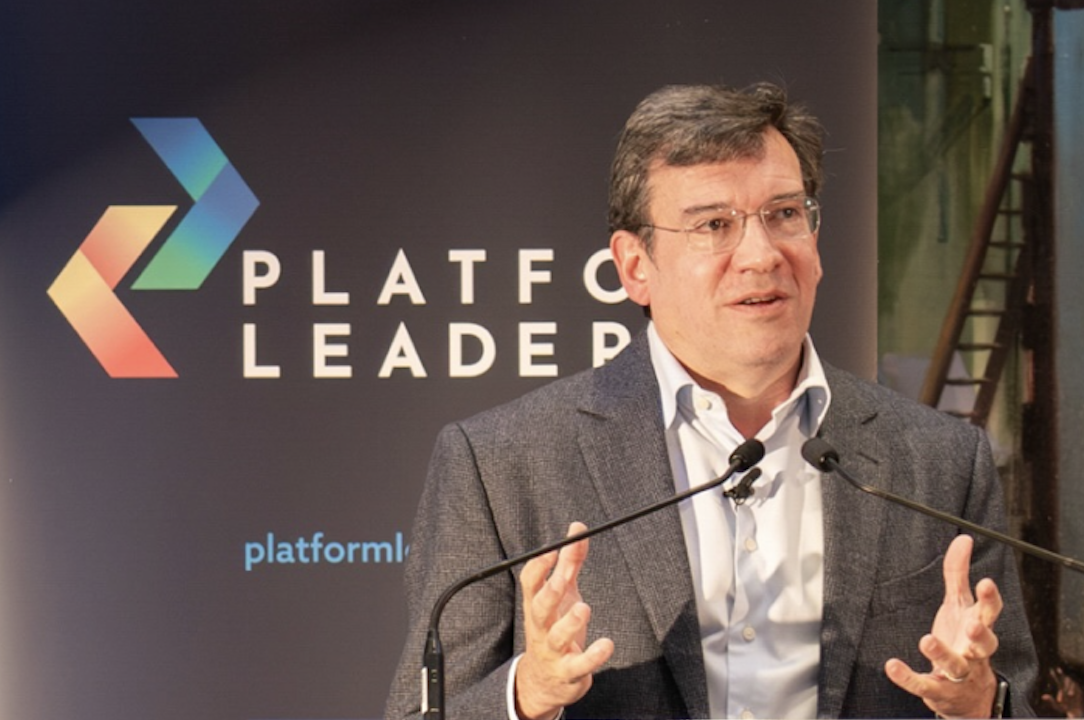Benoit Reillier is Managing Director and Co-founder of Launchworks & Co where he specializes in helping organizations harness the power of ecosystems and innovative platform business models in an AI world. He has been training, advising and coaching the boards and top management teams of many blue chip companies as well as regulators and governments for more than 20 years and is a guest lecturer on platform strategies at a number of business schools and universities including ESCP Europe, HEC Paris, and Berkeley.
Reillier is the co-author of Platform Strategy: How To Unlock The Power of Communities and Networks to Grow Your Business (Routledge 2017) and Mission BlaBlaCar (Eyrolles 2022).
Prior to founding Launchworks & Co Reillier worked in senior positions at KPMG, LECG and TeliaSonera on a range of strategic assignments that shaped the technology, media and telecommunications sectors globally. He was instrumental in the development of regulatory frameworks in a number of countries and provided expert advice in the context of several multi-billion dollar transactions and litigations. Reillier started his career under the aegis of the French government as a special advisor preparing the liberalization of the French telecom sector in the 1990’s. He holds a MSc in Management Sciences from Paris-Sarclay University, a Master degree from IMT Business School, a MA in Economics & Competition Law from King’s College as well as MBAs from both London Business School and Columbia University in New York City.
In an interview with The Innovator Reillier, who was co-chair of the Platform Leaders conference, in London November 18, shared his predictions for 2026.
Q: What do you see as the key trends in 2026?
BR: The first macro trend I see for 2026 is what I call scaled cognition. We are entering a world in which intelligent cognition, which was a scarce resource, is becoming abundant, and individuals, organizations and instit will need to adapt and come to terms with that. It’s a profound transformation: a shift from human mediated to AI agent mediated transactions globally. Delegating tasks to AI agents will become the norm in 2026. Organizations will automate work flows with teams of agents. Tech companies, such as OpenAI, Perplexity, Google and others, will offer agentic AI capabilities in their Apps and browsers.
This will lead to the second impact of scaled cognition: AI mediated discovery and commerce. The scaled cognition wave is changing the way people and organizations find, or are found, online. We’ve grown accustomed to using keywords in search engines like Google and getting blue links sending traffic to selected websites in return. This is changing. We are seeing a rapid shift from keyword-based search to rich conversations. New skills and capabilities will be required for organisations to be found online in this new AI mediated world. And the disruption is not just on the demand side for content, the supply of content is also increasingly AI generated –with predictions that 90% of the web will be AI generated by the end of 2026—which also contributes to making online discovery challenging.
Beyond productivity gains AI will disrupt existing organizations and business models. One of the things we have identified is that lots of firms are focused on productivity gains: doing what they were doing before, but more effectively and cheaper. We think this is important and necessary, but it’s absolutely not sufficient. Companies need to step back and think about how entire organizations, industries and ecosystems are going to change as cognition and AI become a powerful part of the equation and use their productivity gains to invest and position themselves strategically.
Q: What other trends are you seeing?
BR: Digital convergence will continue to be a macro trend in 2026. There are two parts to this. AI needs a digital representation of whatever it is working on and AI itself runs simulations that end up affecting the real world. If Google Maps says the M4 motorway is closed, I can assure you that the whole traffic pattern around London will change dramatically, irrespective of whether the M4 is closed. So, the the virtual representation of the world is now impacting us. The trend – called ‘phygical’, the digitalization of our physical environment- will become more visible in 2026. ‘Phygital fusion’ will create persistent virtual worlds enabling real time simulations. Digital worlds will also boost our ability to train AI robots. Personal and public spaces will increasingly be captured and shared as spatial computing improves (Meta’s Hyperscape software being a preview of things to come). Organizations will need new capabilities to leverage, visualize and simulate digital twins of products, processes and ecosystems. We will also see more incarnated AI: physical products that embed advanced AI capabilities, from robots to self-driving cars. Several new categories of AI powered product will launch. These will take many forms, from hoovers to pets and humanoids as well as new form factors.
In 2026 the impact of robots on our lives will still be minimal, but you will have enough robots in the homes of journalists and influencers to ensure that our Instagram feeds will be full of images of robots.
Q: In November American Chinese computer scientist Fei Fei Li’s company World Labs, a spatial intelligence AI company building Large World Models (LWMs) to perceive, generate, and interact with the 3D world, launched its first multimodal world model. Meanwhile, Yann LeCun, Meta’s French-American chief artificial intelligence scientist, is planning to leave the social media giant to found his own start-up, which will also focus on world. Do you see this as a trend in 2026?
BR: World models will become increasingly important. Current models are based on language and many people believe, me included, that world models are key building blocks for the next generation of AI systems. For example, a good enough world model allows you to speed up the training process of a robot 430,000 times. We forget but when we train a robot you need to train them in a real space. The robot can fall millions of times in different places in your house in different ways. We now have all the building blocks required for people to create a digital twin of their home and when they get their robot it will have been trained on their world and already know how to navigate effectively their environment. This is a step change. And we are quite close to another one: realizing the visual Turing test. The test is to see if when you use specialized devices such as glasses or a helmet to view the world if you’re able to say whether what you’re looking at is real or not. We may realize the visual Turing test in 2026 –in a lab environment for the time being–, which means that when wearing devices, we will no longer be able to determine reality.
Q: What about governance? Last year you predicted some new legislation. What do you think regulators will focus on in 2026?
BR: Closed ecosystems will be subject to increased oversight as policy makers – and ecosystem participants – push for openness, transparency and data portability. Enforcement of platform regulations are underway in key jurisdictions with the Digital Markets Act (DMA) and the Digital Services Act (DSA) in force within Europe and a new Digital Fairness Act (DFA) to prevent bad practices (e.g. making it difficult to cancel a subscription, etc). Expect tension between regulation and innovation to increase as the economic architecture of the AI wave emerges and countries that are mostly ‘users’ of frontier models (the EU) have different views on regulation than countries that ‘produce’ frontier models (U.S. and China).
Q: How can executives best prepare for the changes ahead?
People ask us lots of questions, how do you:
- find things and get found online in an AI world?
- learn new skills to remain relevant?
- deploy AI agents?
- build an AI ready team?
- make the most of the GenAI toolscape?
- embed AI policies into products (AI Act, etc.)?
- use your own data to ‘train’ your model (RAG)
- think strategically about the impact of AI on your firm/ market/ ecosystem and the positions available to you?
These are some fundamental questions that are best addressed collectively. We need to prepare for this transformative AI wave together and that’s why my colleague Laure Claire Reillier, just announced the launch of CollectiveIntelligence.AI, a new initiative that brings together experts, small and large organizations, as well as policymakers, and institutions to address the challenges and opportunities of rapidly advancing AI. The aim is to combine diverse perspectives with cutting-edge research and AI-powered tools to help stakeholders learn about latest developments, share best practices, and shape outcomes that ensure AI develops in a sustainable and responsible way.
This article is content that would normally only be available to subscribers. Become a subscriber to see what you have been missing







